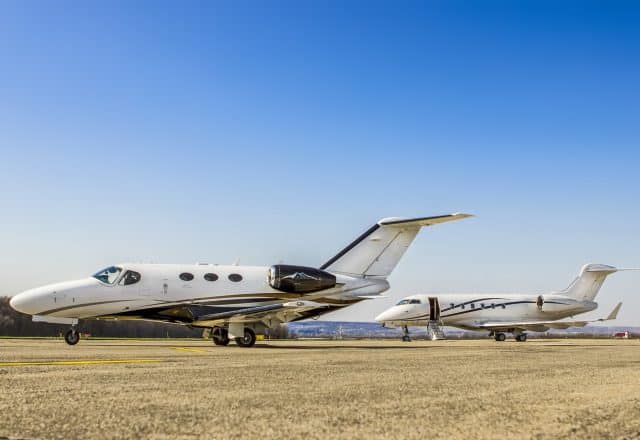Sustainability in the Corporate Jet Charter Industry
Like many 21st century industries, Stratos Jet Charters and our peers in the corporate jet charter industry are striving towards environmental sustainability. New technologies, practices, and insights are reducing our impact on the environment. Some of these environmental concepts seem visionary, others are just common sense. Both travelers and travel providers have a shared responsibility to pursue the best alternatives for the future. Here are three ways the commercial airline and corporate jet charter industries are developing sustainable air travel.
New Initiatives
There are two recent initiatives in the aviation industry that address aircraft emissions. The first is CORSIA, the Carbon Offsetting and Reduction Scheme for International Aviation. The plan is designed to offset aircraft carbon emissions by planting trees and using alternative, non-petroleum fuels. More than 70 countries representing 85% of international aviation have volunteered to participate. The program is being phased in, starting in 2021.
The second initiative was launched in Norway last year. In July 2018, Norway’s transport minister Ketil Solvik-Olsen took a short flight in a two-seat plane made by Pipistrel, a Slovenian company. What was unique about this flight was that the aircraft was entirely powered by electricity. By 2040, Norway intends all short-haul flights to be on electrical aircraft. And though the technology and the Norwegian initiative are still in the early stages, it demonstrates an important trend towards emission-free aviation.
New Technologies
Corporate jet charter travelers don’t have to wait for the development of electrical aircraft to enjoy efficient air travel. Stratos Jet Charters routinely books charters on the most fuel-efficient jets currently available. For example, in the charter airliner category, the new Boeing 777-8 is built with General Electric GE9X engines made with a ceramic matrix composite. These engines have fewer emissions and are 5% more fuel-efficient than previous engines.
Similarly, in the super mid-size jet category, Brazilian manufacturer Embraer has designed its Praetor 600 line to fly further, faster. Since a large amount of fuel is burned on take-off, Embraer re-designed the jet for greater range between refueling stops. Fewer refueling hops mean less fuel wasted on multiple take-offs.
Common Sense
Sometimes the easiest solution is the best. Technology and political initiatives can only get us so far towards reducing carbon emissions. At Stratos Jet Charters, we’ve applied a common-sense approach to reducing fuel usage.
First, we recommend the aircraft best-suited for your specific trip. By customizing your corporate jet charter flight, you travel efficiently at the right altitude, on the best route, in the ideal-sized aircraft for your destination.
Secondly, if we can avoid it, we don’t fly empty planes. We encourage effective fuel use by offering Empty Leg Flight discounts for our repositioning flights. If your itinerary is flexible, and one of our charter aircraft is going to your destination anyway, it makes sense to offer a discount. Our goal is to reduce the number of empty aircraft using up fuel.
Time will tell what impact these new technologies and initiatives will have towards carbon reduction. But there is a strong international commitment to improve air travel every day. If you wait for the perfect future technology to be developed, you may miss some amazing travel opportunities today. Book a flight, and enjoy the most efficient air travel available right now.
For an extraordinary private jet rental company that can arrange luxury charter flights anywhere in the world, call Stratos Jets—888-593-9066.
Are you ready to book your San Francisco to Las Vegas charter flight yet?
Our friendly, expert air charter agents are here to answer questions or start your quote today. Don`t wait, call now and we'll get you on your way to your destination!
Call 888-593-9066











